Weight Loss Nature's Way
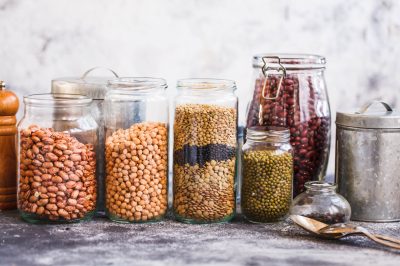
This is a Human Ecology Project Weight Loss Nature's Way Workbook
Studies from 2022 show that over one billion people are affected by obesity. If you, your friends, family or colleagues find themselves in this situation, please share this video and book to assist them in regaining their health.
Dieting is Out - Healthy Eating is In
In Weight Loss Nature’s Way, you will discover over 40 years of nutritional wisdom, herbal remedies, and teas that almost instantly turn on your fat-burning metabolism. I go into great depth about the four hormones that cause weight gain and the three that stimulate weight loss. You will gain insight into why your body stores fat and how your body can burn fat.
Weight Loss Nature's Way is based on a scientifically proven and time-tested method for permanent weight loss. The association between the gut microbiota and obesity has also been observed in humans. In overweight/obese humans, low faecal bacterial diversity is associated with more marked overall adiposity and dyslipidemia, impaired glucose homeostasis and higher low-grade inflammation.
Create A Healthy Biome
Eat a diverse wholefood plant-based diet rich in anti-inflammatory foods grown in healthy organic soil. Avoid white processed foods and sugar. Enjoy my delicious miso broth and fermented pickles to ensure a host of pre-and probiotic richness.
You will gain answers to many problems you've had with your weight, energy level, and most importantly your health and happiness. Crack the weight loss and get your fat-burning switch to the on position. You will feel and see results in the first week and achieve a lean, healthy body while still enjoying delicious food daily.
In good health

Plant-Based Nutrition & Diabetes Type II
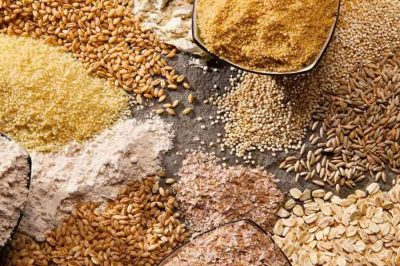
Download our Free eBook here Reversing Type II Diabetes Naturally
Every 6 seconds a person dies from diabetes (5.0 million deaths)
The Healthy Solution
Our Diabetes Initiative is a programme designed to provide individuals who are suffering from diabetes, their families and those at high risk with a natural alternative to a lifetime of medication and illness.
Diabetes is a debilitating disease that has now reached epidemic proportions. 415 million people have diabetes and by 2040 this figure will rise to 640 million. In most of the cases of diabetes are Type 2, an illness that is not only preventable but can be reversed. We know that is a bold statement but it is a true one.
Please view my latest interview on Marlene & Friends with Neal Barnard MD of Physicians Committee for Responsible Medicine discussing this.
The most effective way to improve or cure diabetes is to eliminate the causal factors and reverse the disease process. This means learning to transform the daily habits of diet, activity and mentality that contribute to the disease. We do not use any miracle remedies or mystical mantras only solid common sense and practical life skills.
The Diabetes Epidemic
Like many health issues, diabetes has been known since ancient times. The difference now is that the disease is now spreading at such a rapid rate. The Centers for Disease Control in America has termed the rapid rise of cases an epidemic. The American Diabetes Association cite the assessment of the National Center for Chronic Disease Prevention and Health Promotion (Centers for Disease Control and Prevention) that 1 in 3 Americans born after 2000 will develop diabetes in their lifetime.
Latest statistics show that 1 in 11 adults have diabetes: 415 million. 1 in 7 births is affected by gestational diabetes. By 2040 1 adult in 10 will have diabetes (620 million).Every 6 seconds a person dies from diabetes (5.0 million deaths)
Most of these cases will be Type 2 diabetes, because of our ageing population and rapidly rising numbers of overweight and obese people. More people die each year as a result of diabetes than breast cancer and prostate cancer combined.
With the dramatic rise of diabetes and the inherent risks associated with it is truly sad that not more is done. This is especially true since we know the causes of Type 2 diabetes and that there is such a compelling case for a natural cure.
In good health

The Deeper Meaning of Health
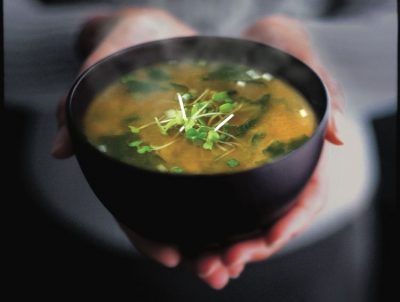
Ancient wisdom for modern times has never been needed more than right now. Mother Earth is a common representation of our planet that focuses on the life-giving and nurturing aspects of nature, the source of every life.
As women, we are the nurturers of human life. Many of us wheel the shopping trolley around the supermarket, cook and feed the family, take care of the home and at the same time, run a business. We are multi-taskers and the epitome of devotion when it comes to caring for our families, health and wellbeing.
Health is Everything, Without Health Everything is Nothing
I learned the valuable knowledge about health at a young age and it has been my life’s work. My love of animals in childhood stopped me from eating them at an early age. This decision, very radical at the time, has inspired my teaching for over 40 years. Now that decision has become more common and it is the most significant development in modern nutrition. It was my growing awareness of health issues that I realized something else as well. Given the right diet and lifestyle the body has the power to recover from illness. We are a self-healing organism if we understand and apply some simple life skills.
When we remove the harmful influences from our lives and replace them with health-promoting foods, attitudes and activities, the body can heal itself. This is true even from illnesses deemed “incurable. There is no reason for us to wait for medical permission to be healthy. Current research shows that most of the diseases that kill us are a response to diet and lifestyle. The greatest secret weapon is at the end of our fork every time we eat. This is why so many women are reclaiming their kitchen and the health of their families.
Human Ecology Diet
When you adopt a healthy plant-based diet, you can usually reverse the spiral of whatever non-communicable disease you have been diagnosed with. Drugs and surgery are the last resort, not the first action when you maintain good health. The fact that we have become so dependent on these interventions is often dangerous and usually disempowering. We have become strangers in our own bodies.
When looked at from the perspective of human evolution, the current diet we are eating is a bizarre anomaly unlike anything we ate over the last four million years. In fact, the human diet has changed more in the last 50 to 100 years more than any other period. Never in modern history has there been such an interest in food and at the same time, such a lack of confidence in the basic quality of what we eat. Our blood, arteries, and cells are not designed to function under so much fat, simple sugar and cholesterol. Our intestines are not designed to function in the absence of fibre. Our immune system is not designed to maintain health without an abundant supply of plant-based nutrients and phytochemicals.
Ancient Wisdom Rocks
The modern diet is high in calories and low in nutrition. It’s no wonder so many of us get cancer, heart disease, high blood pressure, diabetes, arthritis, acid reflux, osteoporosis, and other so-called ‘age-related illnesses’. In fact, it is a testament to the strengths of the human body that anyone has the slightest semblance of health given our way of eating
The phrases “Rely on your gut” and “Gut instinct” make more sense than you may realize! As a second brain, it may be more effective. In addition to the nervous system in the spine, there is a nervous system in the gut called the enteric nervous system, which sends signals to the brain and vice versa. Healthy people are happy people because body and mind are not separate, they are one of the same. If you are anxious, depressed or stressed you may notice that your desire for food is different or your digestion is off.
Self-Generated Tools
The digestive system produces more neurotransmitters than the brain does. It is possible that many people could avoid antidepressants altogether just by supporting their digestive health. In an unconscious act of self-medication, many people reach for a sugary treat or a glass of wine when stressed. This is a short-term and unhealthy way to make the neurotransmitters your body needs to restore your emotional equilibrium
Combining my studies in Plant Based Nutrition, Oriental Medicine and Yoga I have created a fusion of simple, yet effective tools to empower my female clients in reclaiming their natural abilities and sensitivities. My approach is to get people excited about their potential, create health goals and learn effective self-generated tools.
When we strengthen our health we gain new found strengths. It promotes finding our own voice, standing up for our beliefs and only accepting kindness and respect. I ask all my clients and students to expect the best from everyone and to never accept the unacceptable. Do as you would be done by; that is a philosophy that I live by.
We all have a huge opportunity to contribute to the health of ourselves, society and the planet. Until we develop an ethical approach to nutrition that honours the ecological and social impact of the food we eat, we will fail to understand health and healing. Everything is connected, human and non-humans alike, our environment is what sustains us. Connecting the dots is the only way to create balance which is the ever-elusive state that we all search for.
I will leave you with this thought provoking question? If you don’t take care of your body, where are you going to live?
In good health

Positive Vibes

As we head towards Spring, Bill and I are filled with even more passion coupled with positive thoughts and feelings to bring about much needed change. The most important thing we can do to help the fragility of the planet is to get healthy, to take personal responsibility for our health by looking at our food choices should be our number one priority.
Choose The Right Fuel For Our Species
What we choose to eat has also emerged as the most driving force of climate change. This problem is not separated from the steady rise in non-communicable disease. Our focus as always will be on the creation of healthy solutions for human and non-human life on our planet. The fact that we have the power to promote our own health, simply by choosing the right fuel for our species: whole, plant-based food is an absolute gift. By choosing food for our own health, we are also laying the groundwork of hope for the health of our ecosystem that sustains all life on Earth.
Of all the issues that call for our attention, the issue of food is on the leading edge. There is no question about the fact that food production is one of the primary challenges to a sustainable future. This fact gains even more importance given the rapid rise in population, putting a strain on our planetary resources. Some of the solutions to this problem lie in the hands of women. It is women who make the majority of health and nutrition decisions. It is women who can empower healthy solutions.
Experience Matters
Bill and I have worked in the field of health, environmental and ecology for 90 years combined. We have a duty as teachers, health counsellors and authors to continue to educate. Our personal clients have included women (and men) from all corners of society from Royal Families and business leaders to lawyers and doctors. We have offered workshops and seminars in America, Europe, Australia and the UK focused on nutrition and human ecology.
Ancient Wisdom
We have a tendency to think that ‘modern’ is always best, but this is not always the case. Our collective ancestors prized some traditions that are especially important for living a healthy life. Some of these had to do with food selection or preparation, and some addressed our way of thinking. We have all we need in abundance to live a long happy and healthy life.
As we head towards new beginnings with the healing energy of Spring it's good to reflect and know we are all in this together. Planting seeds that bring us health remind us that there is nothing new under the sun. We have all we need to live a long, happy and healthy life. The answer is to go vegan and educate as many people as we can to do the same.
We send you our warmest wishes for a happy, healthy and peaceful Spring and invite you to join us in service for a healthy world for humans and nonhumans alike. Thank you for supporting our work.
In good health

What Is A Vegan Diet?

A Vegan diet and Veganism can mean very different things. A Vegan diet can simply mean avoiding all animal foods. Many vegan diets consist of heavily processed foods and are not necessarily based around the principles of using food to create good health.
Veganism is defined as a way of living that attempts to exclude all forms of animal exploitation and cruelty, whether for food, clothing or any other purpose. For these reasons, the vegan diet is devoid of all animal products, including meat, eggs and dairy. Again, this may also mean eating in a way that is devoid of the nutrient dense foods that the longest healthiest living people on the planet consume.
In our Human Ecology Diet we address this issue by adopting the principles of ancient wisdom and nutritional science. You will find everything you need on our link here
What we're looking at is basically what nature provides for us in abundance; wholegrain, beans, vegetables from land and sea, fruits, nuts and seeds,. Once we understand that, then I think we can start to move forward because it is basically whole food that matters. Plants gift us with a huge variety of course in using that food any way we wish. You can find some delicious recipes on our website link here to get your started. I think it's a simple message, but at the same time, acknowledging that tremendous variety of foods that nature provides and respecting the very fact that what we eat creates health or disease.
When we combine ancient wisdom with modern nutritional science and then inform people how they achieve a long and happy healthy life, it's like switching on another lighthouse. Our mission continues in 2021 switching on as many lighthouses as we can around the world to Go Vegan.
Bill and I invite you all to join us in service for a healthy world for humans and nonhumans alike.
In good health

Sustainable Food System
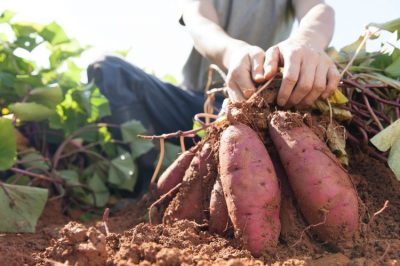
Human activity is causing environmental degradation, which is the deterioration of the environment through depletion of resources such as air, water and soil; the destruction of ecosystems; habitat destruction; the extinction of wildlife; and pollution.
A truly sustainable food system must start with a shift from an Animal to a Plant economy. This will demand a paradigm shift in the social view of our relationship to the environment and a clear understanding of the benefits of early action and the dangers of moving slowly. The economic, ecological and social impact of this change is essential.
Education is the key factor. The most prominent public attitudes regarding environmental health are focused on the role of governments, science and industry to provide solutions. Solutions generated from the top down, no matter how well intended, are needed but are too slow to deal with the magnitude of problem. Direct action from consumers can produce the most dramatic and sustainable results. The issue of sustainability is not a mystery and it does not require new studies, it requires grass roots action.
A sustainable food system would include:
- Focus on public education about the health and ecological importance of a plant-based diet.
- A philosophy of soil renewal through organic agriculture and natural pest control and encourage biodiversity through re-wilding.
- Local and regional food consumption over foods that are shipped great distances.
- An adequate supply of nutritious food to secure needs of an ever-growing world population.
- A clear message of individual and social health benefits as well as “big picture” messages. Self-interest is a major driver in human behaviour.
We are in this together
It only takes one grain of sand to turn the tide. That one grain of sand is each and every one of us. We can make a tremendous difference and minimize our impact on land and water resources by referring to four distinct areas: human, social, economic and environmental - known as the four pillars of sustainability. It’s simple in its essence that a sustainable world would meet the needs of everyone. We should all be able to meet our own needs without compromising the ability of future generations to meet their own needs. We are depleting our natural resources and education is the only way to reverse this downward spiral.
Our human ecology project
The issue of ecology is a very important one in terms of human nutrition because human ecology really describes what our relationship is with the planet that we live on. We need to consider the entire food system from production to consumption and understand each of its components, their relationships, and their immediate and long-term impacts. Agriculture should be recognized as a solution to biodiversity loss, climate change and pollution.
Industrial agriculture consumes a whopping 70 percent of all freshwater on earth and also causes approximately 80 percent of forest loss. It is one of the most unsustainable practices of modern civilization. Runoff from fertilisers pollutes lakes, rivers, and coastal ecosystems. Our current global food system is quoted as being responsible for one-third of global greenhouse emissions (but as high as 51%) and it completely depends on fossil fuels for transportation and synthetic fertilizers and pesticides. Factory farming is not just cruel but is a threat to all life on the planet.
There is nothing new under the sun. A wholefood plant-based diet is the most sustainable food system. Please join Bill and I in service for a healthy world for humans and nonhuman alike. Thank you.
In good health

Climate Change & Rising Sea Levels
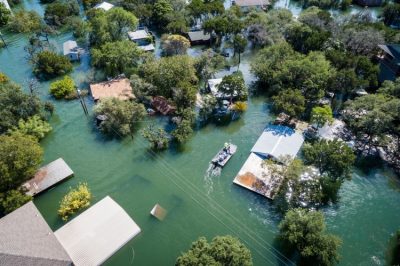
The world’s oceans, streams, and waterways play important roles in preserving the health and vitality of our global ecosystems: they act to store carbon, they affect air temperature, and act as rich sources of biodiversity. Today we find that their health is in rapid decline, and many people do not recognise how extensive and widespread the damage, nor do they always recognize the role that humans play in this decline. It is important that we all educate ourselves on what is happening to our local underwater environments and understand the impacts of industrialised farming and fishing on these resources.
Bill and I are currently based in a small village called Godalming in Surrey, about 45 minutes by train from London Waterloo Station. The River Wey runs through an open field at the end of our garden and is a tributary of the River Thames in south east England. The Wey and Godalming Navigations were built in the 17th and 18th centuries, to create a navigable route from Godalming to the Thames.
Just over 60 years after it was declared "biologically dead," England's River Thames had been hailed as an environmental success. But while much of the effluent, chemicals and heavy metals that used to pollute the river are gone, microplastics have taken their place. One source of acidification in our rivers and oceans is plastics breaking down. When compared to global estimates of microplastic pollution, the Thames has very high levels.
That coupled with the fact that global warming is causing sea levels to rise will have effects around the coast of the UK, from major cities such as London to many smaller villages and towns. One place which is in the frontline of present and future sea level rise is London, the capital of the UK.
Why is the sea level rising?
Global sea-level rise is caused by the melting of ice sheets in Greenland and Antarctica and the expansion of seawater as it heats up (Humphreys, 2019a). Over the period 1901-2010 global average sea levels rose 0.19 metres (IPCC, 2013). Predictions for future sea-level rise vary. The impact on levels of sea-level rise in different locations vary.
London has always been vulnerable to the sea as the Thames is tidal and high tides bring increased water levels to the river in the city. The high tide level of the Thames has risen over time and the risk from tidal surges has increased. Tidal surges are caused by a combination of a high tide and strong winds which push water towards the land and up rivers. They affect London when a surge in the Atlantic, funnels down the North Sea, up the English Channel, and then up the Thames Estuary (Carbon Brief, 2014). From the evidence of the London Bridge high water mark, we know that the level has risen since 1780 by over 1.5 metres (Carbon Brief, 2014). Alongside ice melt increasing seawater volume other factors have important impacts on the changing sea level in London.
In 1953 there was a catastrophic tidal surge. The flooding from the surge caused huge damage and cost 307 lives (RGS, 2020). It also caused an estimated £50 million (£5 billion in today’s money) (RGS, 2020) in damage and lost income to the city. Rising sea levels, due to climate change, are predicted to be a threat to 1.2 million people in the capital by 2050. The economic importance of London is a central factor in the government response to this issue.
Flooding, flooding and more flooding on the way
Climate change will increase the intensity of rainstorms leading to flash floods from tributaries and the drainage system; bringing more frequent intense winter rainfall leading to a higher and more frequent threat of flooding from the Thames and its tributaries.
The problems caused by rising global temperatures are predicted to include heatwaves, flooding, food and water shortages and blackouts by mid-century, if urgent action to curb greenhouse gases is not undertaken.
In terms of the area we are currently based, Surrey, England, there are no large-scale agricultural practices. It is largely a residential county being so close to London and is termed a ‘bedroom town’. Most of the problems occurring in this immediate area are caused by activities upstream in the larger Thames basin, which includes increased risks of flooding and pollution of rivers and canals due to agricultural practices.
The latest from the local councils here to combat climate change are as follows:
- Embedding sustainability:they will include environmental considerations in decision making across council services.
- Climate change resilience:they are working with partners to build the resilience of our communities and estate to climate impacts.
- Operations and estate efficiency: they will make their buildings, operations and services as resource efficient and low cost as practicably possible.
- Procurement:they are working with suppliers to reduce the environmental impact of the goods and services they deliver for us and reduce our supply chains exposure to environmental risks.
- Air quality: they will reduce emissions from transport and improve air quality across the county through sustainable transport options.
As always, there is not one mention about dietary change. Adopting a wholefood plant-based diet is the one thing each of us can do to stop the devastation and destruction of our planet.
In good health

Ending World Hunger
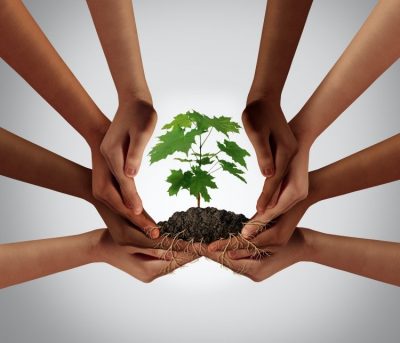
Impact of food choices on world hunger
As you are probably aware, many health experts are concerned about the short- and long-term impacts of fluctuating food prices and inconsistent food supplies. In the period immediately following food price hikes, poor families who are already struggling to feed themselves begin to decrease spending on health. Bill and I are so passionate about sharing what we know with many good people like yourself who may be unaware that dietary changes could help end world hunger. Knowing there is a solution is what we all need to focus on, and I wanted to ask if you would be willing to help me spread the word. Nations ending hunger will require tough choices in the field and on the dinner table, but it can be done. Collaboration is at the centre of everything, and so the future depends on the sustainable work we do today, you, me, our family, friends and colleagues. Are you encouraged and excited to be part of this work? Being a healthy vegan and sharing our vision is a great joy.
Impact of food choices on human health
Each of us have to consider that what we put on our plates at breakfast, lunch and dinner can contribute to world hunger. For our fellow man, hunger and malnutrition makes the body weak and vulnerable to diseases and infections as the body does not have the fuel to build muscle and fight off infections. In children, this is deadly, and many children die in hunger prone areas for this reason. Research also shows an association between food insecurity and delayed development in young children; risk of chronic illnesses like asthma and anaemia; and behavioural problems like hyperactivity, anxiety and aggression in school-age children.
Ending world hunger
Implementing these three words ‘ending world hunger’ would feed nearly one billion people who go to bed hungry day after day. At the other end of the scale, we have nearly one billion people eating themselves to death. There is still such a lack of awareness around the world about how our food choices affect others, so, I wanted to share with you some ideas that can help feed everyone on this planet. Wouldn’t that be a wonderful thing? Sustainable and healthy diets will require cooperation on a global scale not simply from a few countries, but from all countries.
We must all move towards a plant-based vegan diet, and as a result, we will use less water to produce the food. In addition to consuming a lot of water to produce meat, livestock farming also pollutes our water source because of the waste produced by the livestock ends up in waterways. And for yourself, you will feel more energized, healthier and have better health as you age than you could ever imagine simply by removing the animal-based foods. You have nothing to lose but everything to gain.
Other key changes needed are cutting food waste and combating poor nutrition. If we see that there is more than enough food for everyone, that ending hunger would be easy, that it would be joyful, that it would allow hundreds of millions of people to become productive healthy humans with us, that the lives of all of us would be enhanced immeasurably if 25,000-35,000 people per day were not dying of hunger, so I am hugely encouraged that there is much that can be implemented, are you? Here are just a few things that we need to be thinking about.
Climate smart agriculture, responding to forced migration, reducing food waste, disaster risk reduction, controlling infestations and crop infections and of course the number one solution is to stop feeding the food grown to animals, with about 75% of global agricultural land being used for animal agriculture, much of which is attributed to crops grown for animal feed. It may seem like an impossible task to end world hunger but it’s not, it is 100% achievable.
Food is already plentiful
The world already produces enough food for everyone, but around one third of it is discarded or spoils in transport or storage before reaching consumers. It is possible to end world hunger and we all must unite to make this happen. All of us can and should be able to provide foods for our families every day. I hope you are excited by the prospect of being involved in creating a world where food hunger is a thing of the past. Please join me in encouraging, instructing, mentoring, teaching, influencing, guiding and inspiring, many others to assist in ending world hunger.
There are so many fantastic projects with so many wonderful people doing great work to end world hunger, I am so blessed to be part of this work. Education is the most important tool we all have to change the world. United we stand, divided we fall as the saying goes, so back in 2010 I launched an online programme called Weight Loss Nature's Way. 20% of sales went to Action Against Hunger UK which meant that those who were overfed were then contributing to those who were underfed, and it did bring about awareness that when we connect the dots, we realise that we are one. No matter how small we think we are, we can all bring about change. Our actions count, our words count, what we have at the end of our fork’s everyday counts. Global food literacy programmes are one of the most important incentives that bring about change to millions.
What to do?
So, what is the solution you might ask? How can we avoid supporting industrial agriculture? As consumers, we can choose not to eat the Standard American Diet (SAD) or in fact, now the world diet which is inundated with animal products that largely come from industrialised factory farms. By choosing a whole food plant-based vegan diet, you can do your part in not supporting a major part of the industrialised agriculture system. We should all do our best to embrace whole, sustainable food.
To quote Buddhist Monk, Thich Nhat Hanh: “Every day, 40,000 children die in the world for lack of food. We, who overeat in the West, who are feeding grains to animals to make meat, are eating the flesh of these children.” As mentioned above, industrial agriculture is also the main driving force behind water scarcity/pollution, species extinction, deforestation, poor health outcomes, the death and never-ending suffering of our animal kingdom and climate change.
We each have two hands, one for helping ourselves and one for helping others. That's my philosophy that I love and live daily, to see the end of world hunger with a vegan world at the core would make my heart sing. We both feel very privileged to do this work every day.
In good health


